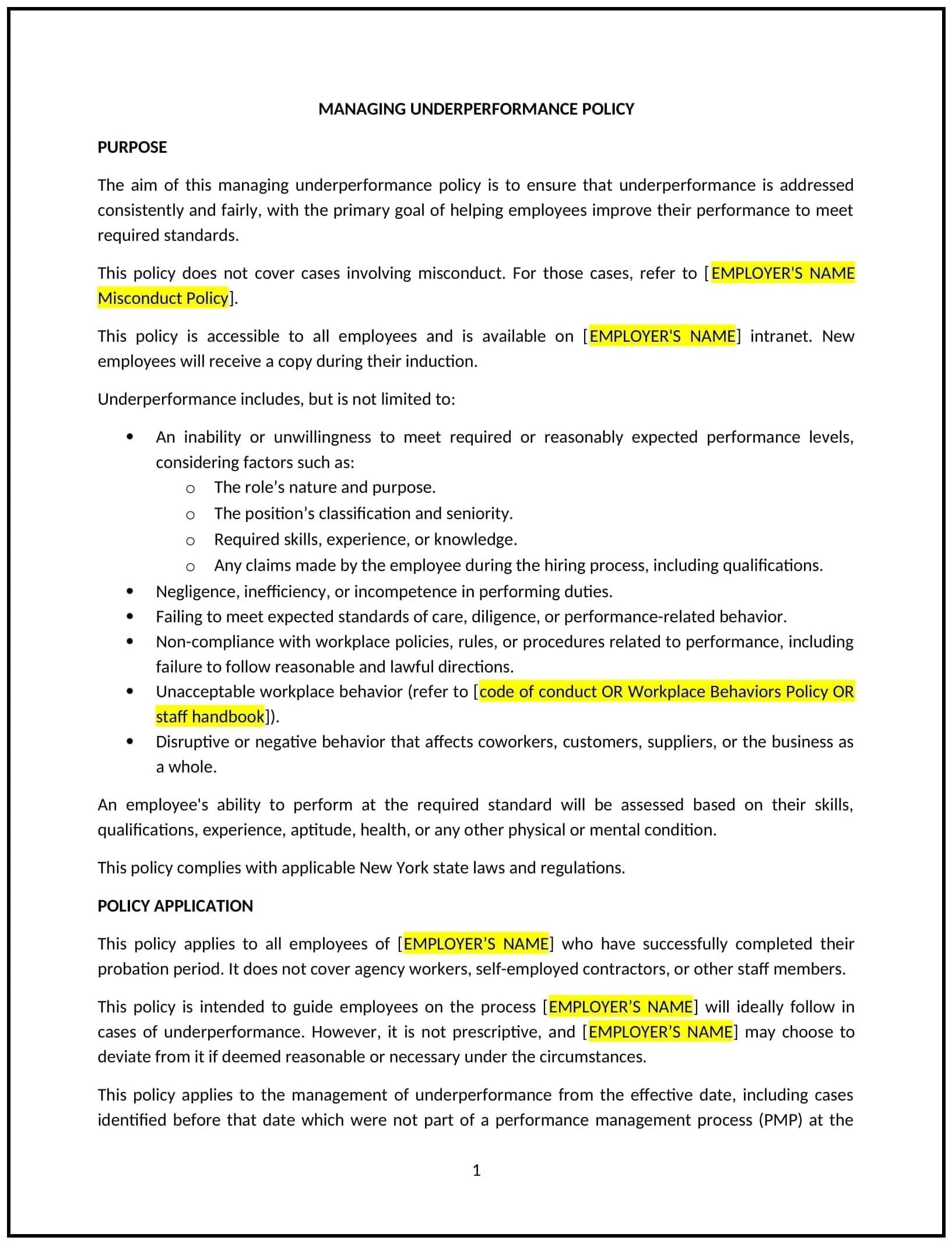Managing underperformance policy (New York): Free template
Got contracts to review? While you're here for policies, let Cobrief make contract review effortless—start your free review now.

Customize this template for free
Managing underperformance policy (New York)
This managing underperformance policy is designed to help New York businesses establish clear guidelines for addressing and improving employee performance issues. Whether businesses are supporting employees in meeting performance expectations, fostering a productive workplace, or minimizing disruptions, this template provides a structured approach for managing underperformance.
By adopting this template, businesses can create a fair and transparent process for addressing performance challenges while promoting accountability and growth.
How to use this managing underperformance policy (New York)
- Define performance expectations: Clearly outline the standards employees are expected to meet, ensuring they align with job roles and organizational goals.
- Identify underperformance: Describe how underperformance is identified, including examples such as missed deadlines, poor quality of work, or lack of engagement.
- Implement a performance improvement plan (PIP): Detail the steps involved in creating and implementing a PIP, including timelines, measurable objectives, and support mechanisms.
- Provide support and feedback: Emphasize the importance of regular feedback and access to resources, such as training or mentoring, to help employees improve.
- Include escalation and outcomes: Outline potential outcomes if performance does not improve, such as reassignment, additional support, or termination of employment.
Benefits of using a managing underperformance policy (New York)
This policy offers several benefits for New York businesses:
- Promotes accountability: A structured policy encourages employees to take responsibility for their performance and seek improvement.
- Reduces legal risks: Aligning with New York employment laws ensures that performance management practices are fair and compliant.
- Enhances employee development: Providing clear feedback and support helps employees address challenges and grow in their roles.
- Maintains productivity: Addressing underperformance proactively minimizes disruptions to team dynamics and overall productivity.
- Demonstrates fairness: Transparent procedures foster trust by ensuring all employees are treated consistently and equitably.
Tips for using this managing underperformance policy (New York)
- Set clear performance standards: Regularly communicate performance expectations to employees through job descriptions, goals, and performance reviews.
- Document all steps: Keep detailed records of discussions, feedback, and actions taken to address underperformance to maintain transparency and support decision-making.
- Provide timely feedback: Address performance issues promptly and constructively to help employees improve before they become larger concerns.
- Involve HR or legal advisors: Seek guidance for complex cases to ensure the policy is applied consistently and complies with New York labor laws.
- Review regularly: Update the policy to reflect changes in workplace practices, employee needs, or legal requirements.